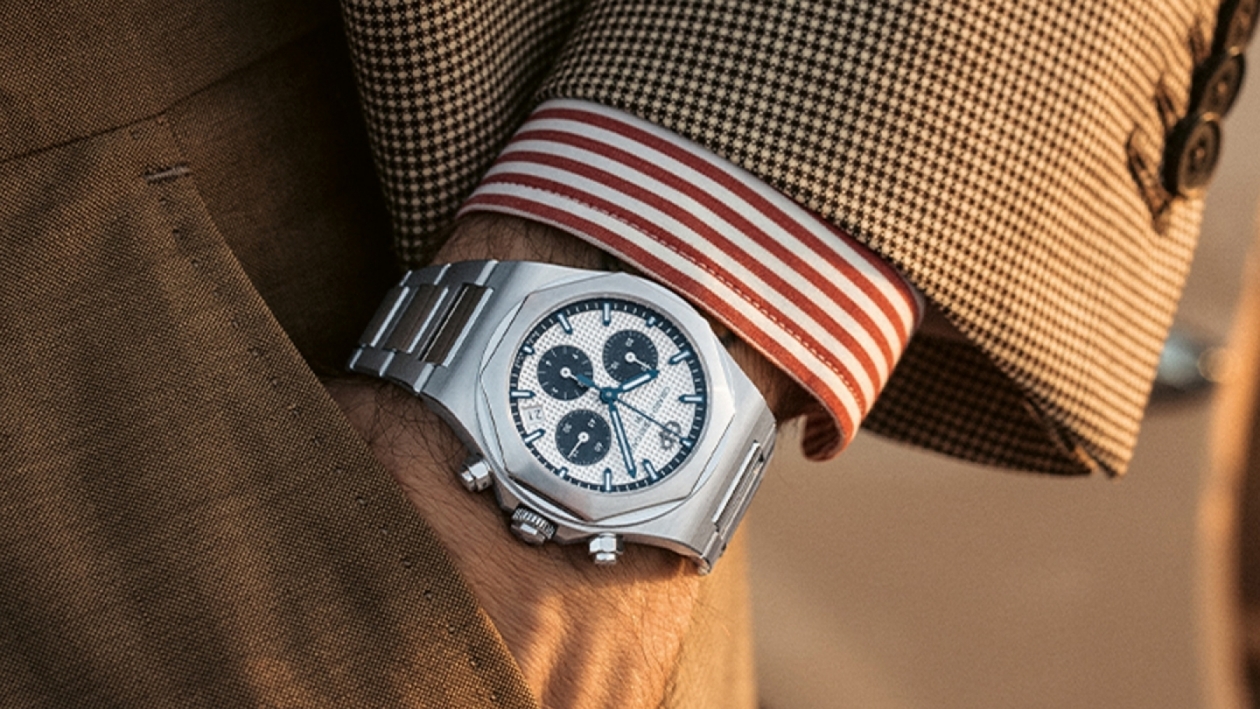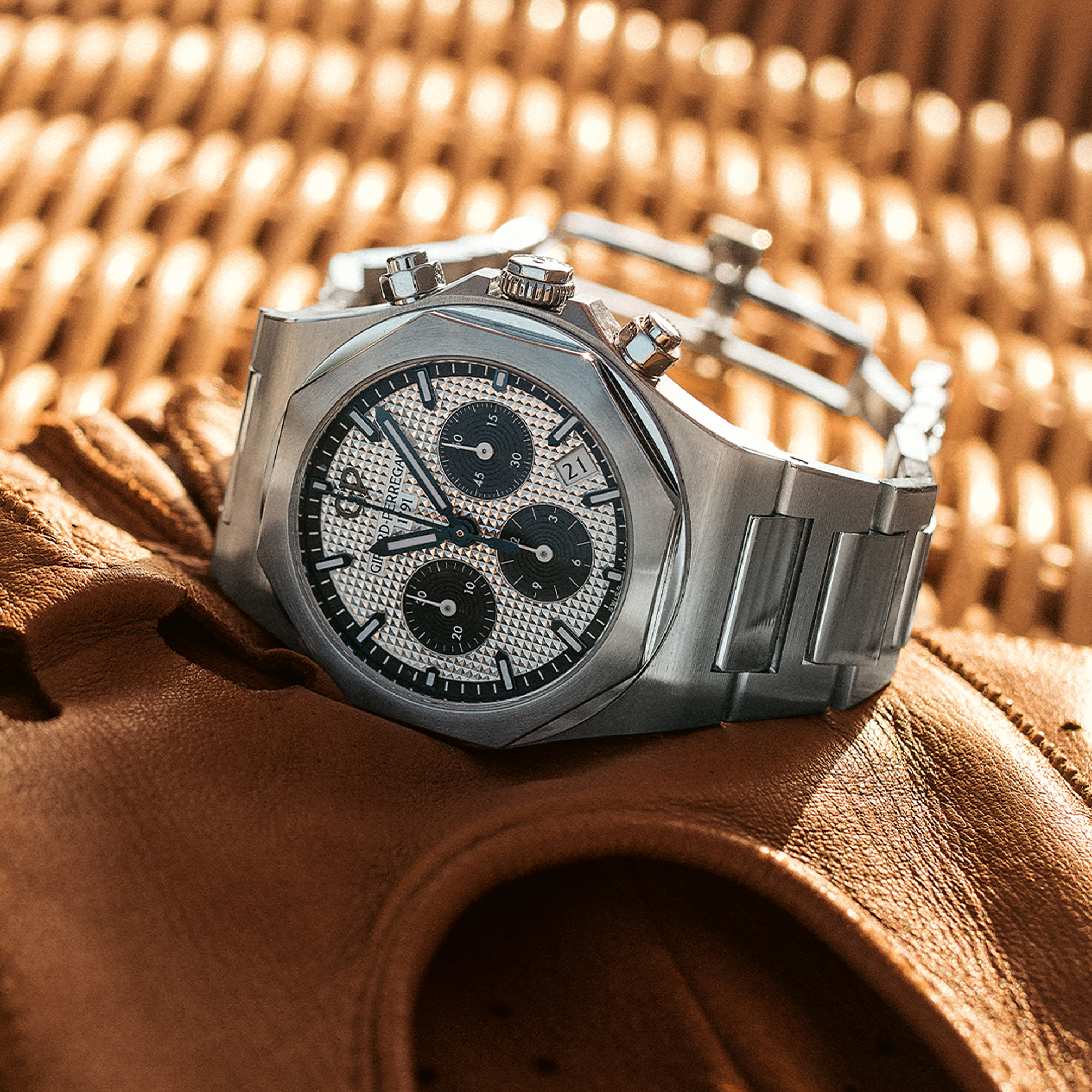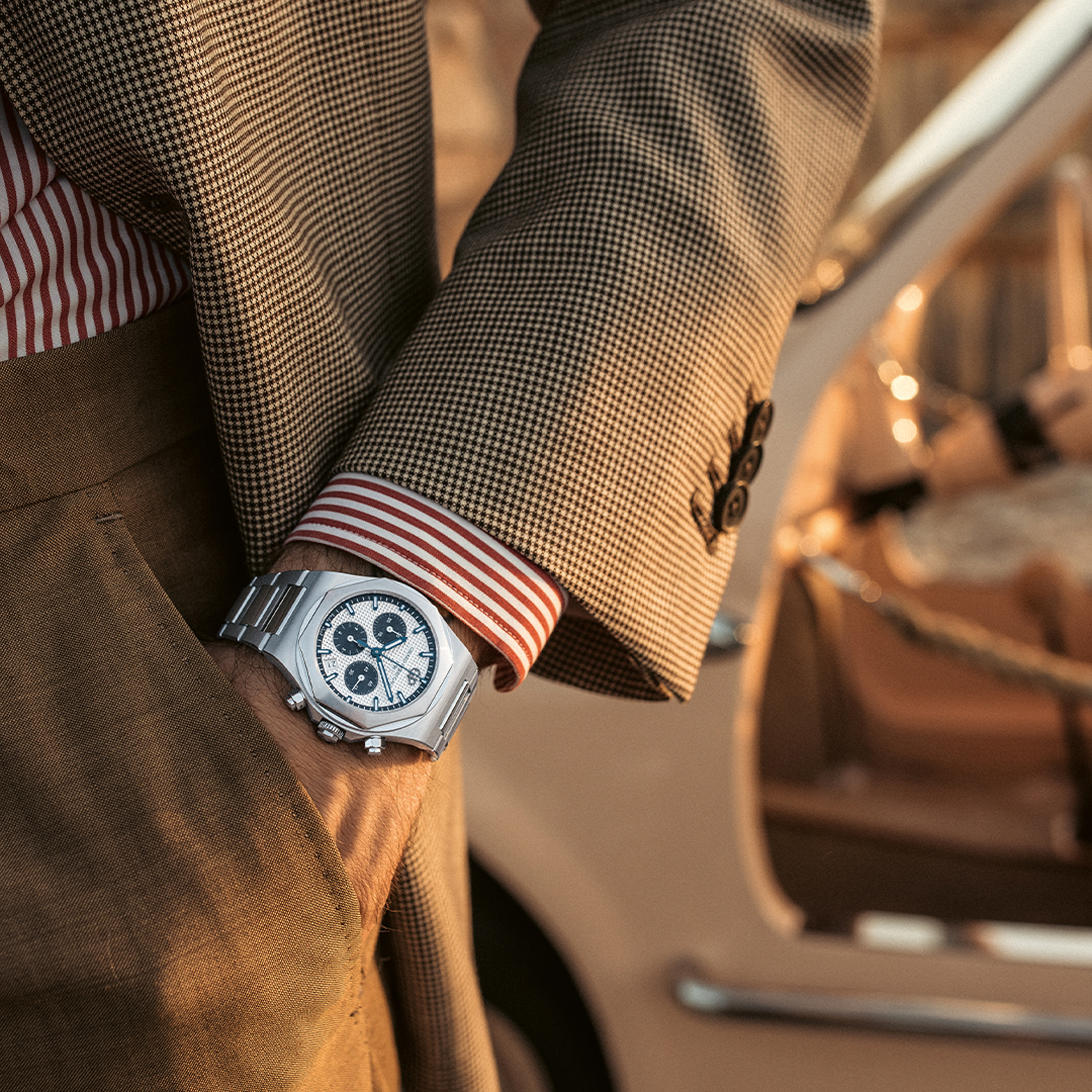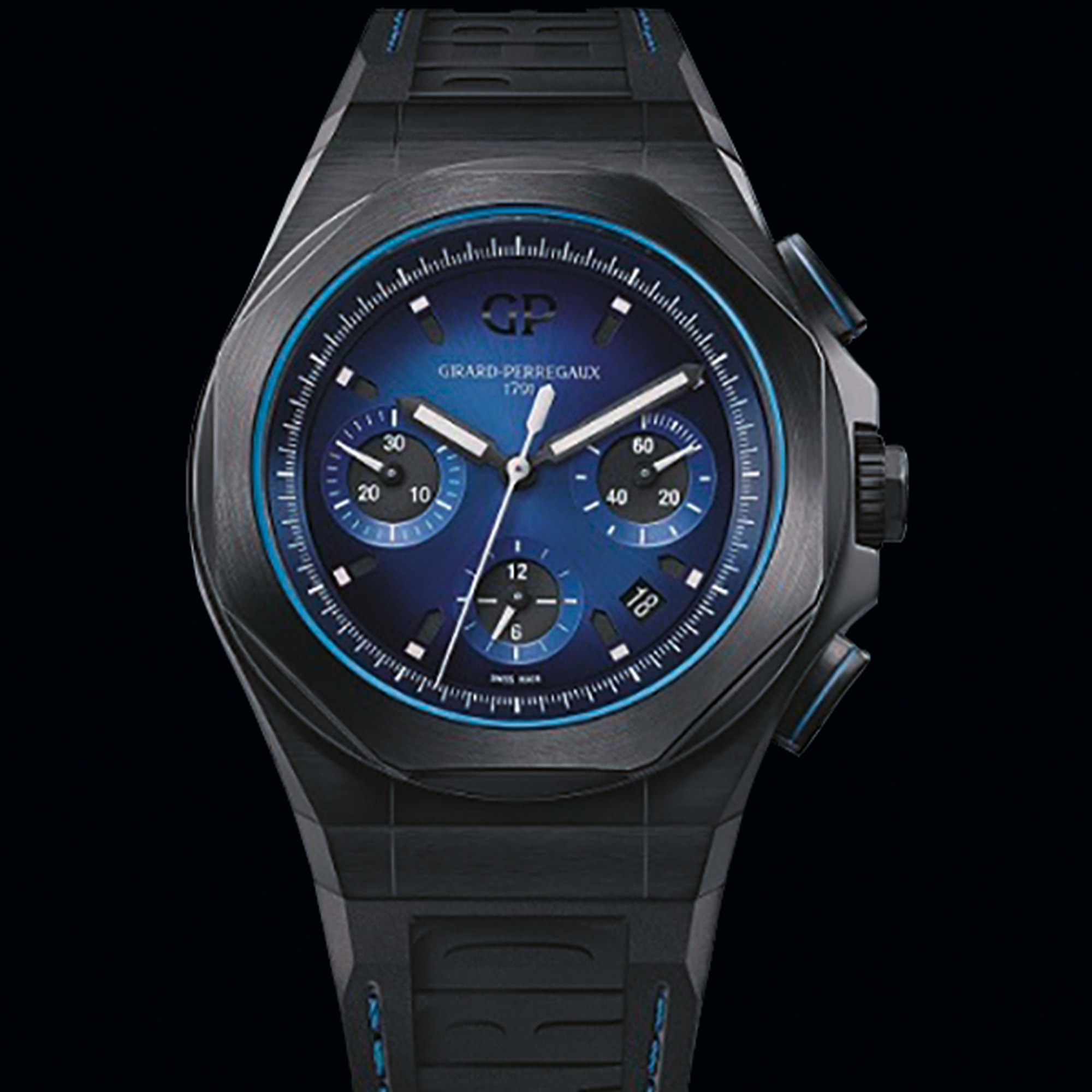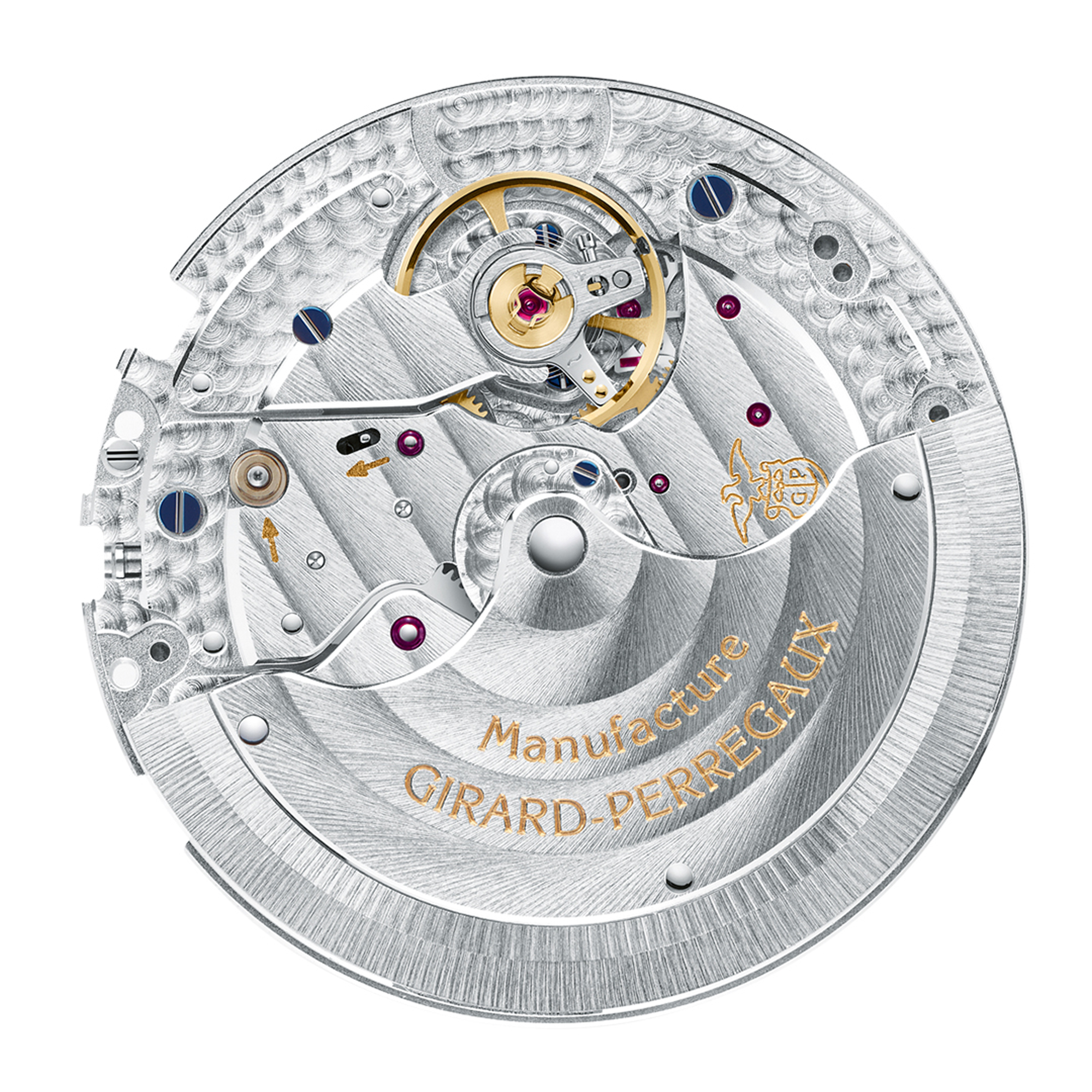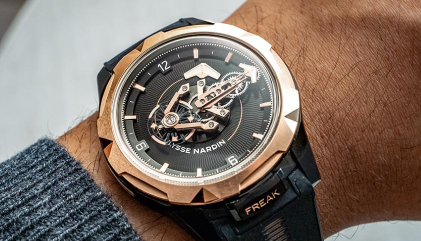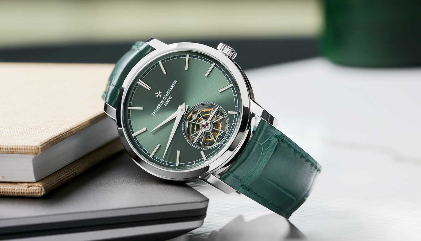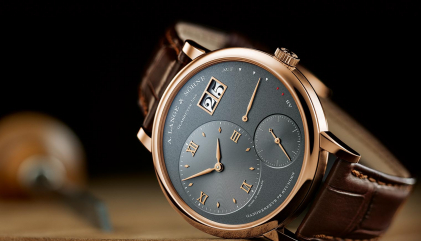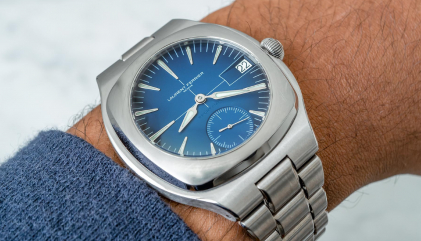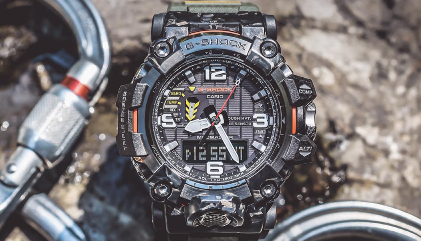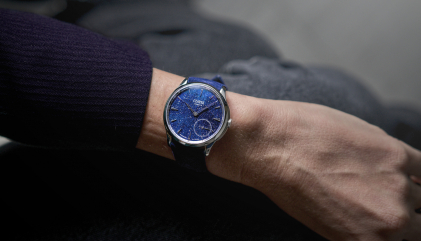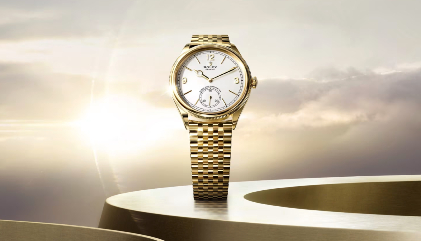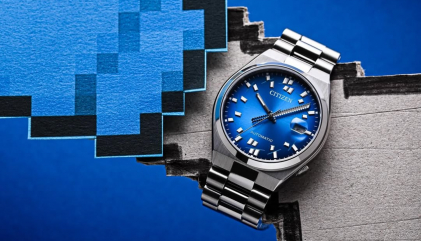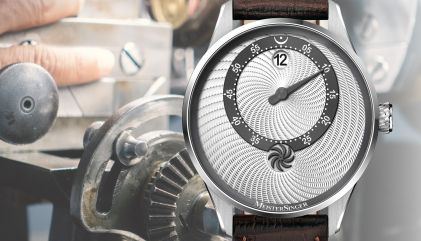After the brilliant return of the Girard-Perregaux Laureato in 2016, chronographs have been added to this line. The latest addition is the Absolute Rock chronograph with a carbon glass case, which is manufactured using a patented injection molding process. We test a classic version with a 42-mm stainless-steel case and a high-contrast dial.
Based in La Chaux-de-Fonds, Girard-Perregaux ranks among the oldest Swiss watch manufacturers. The company dates back to 1791 and is characterised by legendary watch models that combine expressive design and innovative craftsmanship, e.g., the famous Tourbillon with Three Gold Bridges. Girard-Perregaux also pioneered quartz technology and defined the international standard with an oscillation frequency of 32,768 Hz. More than 100 patents and numerous awards bear witness to the know-how of this manufacture. With the relaunch of the Laureato in 2016, the brand revived a model that became an icon in the 1970s thanks to its aesthetic stainless-steel case and integrated bracelet. Girard-Perregaux is now part of the Kering Group.
The Girard-Perregaux Laureato Chronograph in stainless steel comes in three dial variations: very sporty in black with blue counters; quite elegant in all blue; or, like our test watch, rather classically silver-coloured with black counters. On the one hand, this third variation follows the current trend toward luxury steel sports watches that are appropriate for everyday office life as well as for the theatre in the evening. On the other hand, this version is not at all boring thanks to plenty of surface finishing and diverse details.
The dial’s silvery background immediately catches the eye with its waffle-like clous de Paris pattern. This pyramid-shaped relief creates special lighting effects. Three subdials stand out in black: the small seconds at 3; the chronograph’s counter for 30 elapsed minutes at 9; and the counter for 12 elapsed hours at the 6 o’clock position. Arranged in the V-shaped tricompax formation, the subdials have a striking grooved look and are equipped with slim, easy-to-read scales. The dial’s contrasting black periphery is marked with the minutes scale, along which the tip of the long baton hand sweeps from the centre. This scale can also be used to read the elapsed seconds: simply focus on the blued elapsed-seconds hand, which sweeps along this scale and is slightly longer than the minutes hand.
Like the applied hour indexes, the blued baton-shaped hands for the main time are coated with luminous paint to show the time in the dark. In daylight, however, the numerous refined details and the strong black-and-white contrasts occasionally compete with each other. For example, the elapsed-seconds hand is sometimes hard to distinguish above the subdials, but the continually running seconds at the 3 are always clearly visible.
Luxury Sports Watches in Stainless Steel Are Trendy
The Laureato’s attractive case is no less exciting than its dial. And it was also very popular — when Girard-Perregaux launched the first Laureato in the mid-1970s, luxury sports watches in stainless steel were as much in vogue as they are today. Slim cases are typical of the spirit of the time, but with angular bezels, elaborate surface treatments with alternating polished and satin-finished surfaces, and, above all, integrated stainless-steel bracelets.
Today’s Laureato chronograph is unmistakably based on the genetic codes that were first defined 45 years ago — the octagonal bezel, which has softly rounded corners, a gentle downward slope toward the outer rim, satin finishing on the top and bright polishing on its sides. The bezel is positioned atop a polished ring; together, these two components top the distinctive middle part of the case, which merges seamlessly into ergonomically shaped lugs. This not only improves the fit on the wrist for a watch that’s a generous 47 mm in diameter when measured by its lugs, but also enables the case to merge with the stainless-steel bracelet, with which it combines to form a design unit. Even the bevel along the edge of the case continues with the broad, satin-finished, H-shaped links in the bracelet, while the middle, slightly curved links shine with a glossy finish. The case and bracelet flatter the wrist as an inseparable design ensemble. Their technical interplay makes the watch appear flat and elegant on the wrist. The supple bracelet is secured by a finely crafted, double-folding-deployant-clasp that is engraved with its manufacturer’s initials and can be easily opened by pressing its lateral push-pieces.
The case and bracelet are made of 904L stainless steel, the same alloy that Rolex has used for many years. This alloy’s unusually high chromium content makes it difficult to machine but also assures that it remains highly resistant to corrosion and glows with an exceptional shine.
The pushers and crown contribute sporty touches to the ensemble of the case and bracelet. The knurled crown, which also reflects the octagonal shape at its top, is screwed into one side of the case, which works well and is secure. Turning the unscrewed crown in its first (i.e., innermost) position manually winds the watch. Extracting the crown to its middle position and turning it clockwise quickly resets the date, which appears in a window at 4:30 due to the arrangement of the three subdials. If the crown is pulled out completely, the movement is halted and the watch can be set very precisely. The chronograph’s push-pieces are screwed too, albeit with relatively short threads, which means they can be released quickly. On the other hand, they can sometimes be challenging to unscrew because the octagonal parts are small and smooth and, therefore, difficult to grasp. When they’re unscrewed and ready for operation, only light pressure is needed to trigger the pushers, which respond audibly and palpably to signal when their job is done. When the push-pieces are screwed shut, they combine with the screw-in crown and the six screws that affix the caseback to provide pressure resistance to 10 bar, which is sufficient for swimming or wearing in the rain and makes the Laureato chronograph a genuine sports watch. Unfortunately, automatic manufacture Caliber GP03300-0122/0137/0138 remains hidden behind the stainless-steel caseback, which is decorated with an octagon.
The movement’s long alphanumeric designation stands for Girard-Perregaux’s caliber in combination with a chronograph module from Dubois Dépraz, the Swiss specialist for movements and complications. Modular construction means that the chronograph cadrature is positioned on the dial side, so it wouldn’t be visible through a transparent back anyway.
The Laureato Absoulute is the newest model in the Laureato line. With its diameter enlarged to 44 mm, it boldly shows its presence on the wearer’s wrist, but its overall weight is lighter thanks to the black PVD-coated titanium case, which has a higher pressure resistance of 30 bar. The watch is worn on a new, fully integrated rubber strap with a black, PVD-coated, double folding deployant buckle. In addition to the chronograph, Girard-Perregaux also offers a three-hand watch and a model with a world-time function.
An Iconic Watch That’s Appropriate for Every Occasion
The movement, which consists of 435 individual components, including 63 jewels, offers 46 hours of power reserve and a praiseworthy degree of sophistication with various Geneva stripes, satin finishes, circular graining, beveled edges, and blued screws. The movement’s rate values are also satisfactory, although they could be a bit more harmoniously balanced among the individual positions when the power reserve is running low, and the chronograph is switched on. On the other hand, harmonious balance is abundantly evident in the design of the case and bracelet, thus making the Laureato chronograph an iconic timepiece.
This watch appeals mainly to men who want to wear a sporty timepiece on every occasion. It also offers wearing comfort with its slim, integrated design and classic, but by no means boring aesthetics.





